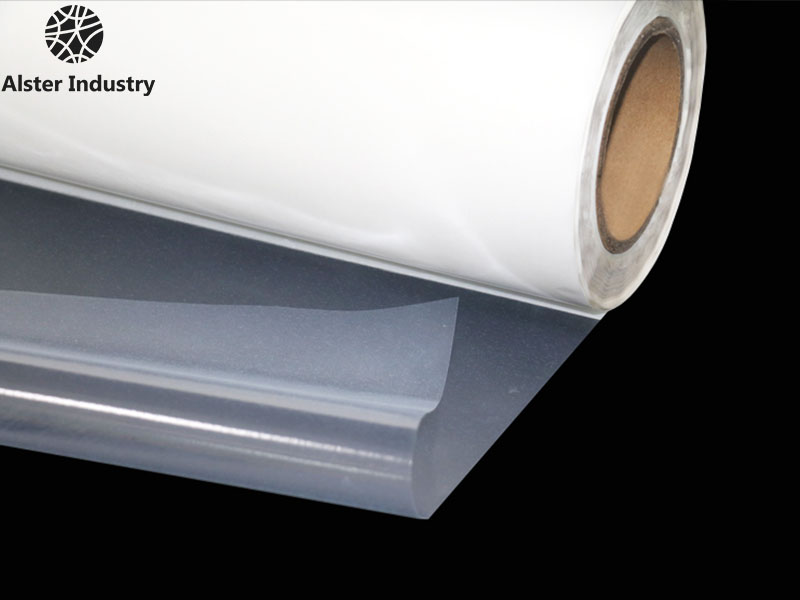Polyethersulfone film, often abbreviated as PES film, is a high-performance thermoplastic material widely known for its exceptional thermal stability, chemical resistance, and dimensional strength. As modern industries continue to demand materials that combine durability, precision, and reliability, polyethersulfone film has become a preferred choice in sectors like medical, filtration, electronics, automotive, and aerospace manufacturing.
This article explores the key uses, major advantages, material properties, processing methods, and market outlook of polyethersulfone film. Whether you are a raw material buyer, product developer, or industry researcher, understanding PES film can help you choose the right material for advanced applications.

What is Polyethersulfone Film?
Polyethersulfone (PES) is a type of aromatic thermoplastic polymer featuring sulfone and ether bonds within its molecular structure. These strong chemical bonds give the film:
- High-temperature stability
- Outstanding mechanical strength
- Strong resistance to oxidation and hydrolysis
- Reliable electrical insulation performance
- High transparency and optical clarity
Because of these properties, polyethersulfone film is considered a high-performance engineering plastic, suitable for long-term applications in harsh environments.
Key Material Properties of PES Film
Understanding the physical and chemical characteristics of polyethersulfone film is essential to selecting it for the right purpose:
| Property | Description |
|---|---|
| Heat Resistance | Works continuously up to 180–200°C without deformation |
| Chemical Resistance | Resists acids, alkalis, oils, and many organic solvents |
| Hydrolysis Resistance | Stable in steam and water, suitable for sterilization |
| Mechanical Strength | High tensile and impact strength |
| Electrical Insulation | Excellent dielectric stability for electronics |
| Dimensional Stability | Low shrinkage and minimal deformation |
| Optical Clarity | Good light transmission and amber natural color |
| Flame Resistance | Naturally flame-retardant, low smoke emission |
Because PES film can withstand high temperature steam and repeated sterilization, it is often used in medical and food-related applications where safety and hygiene are crucial.
Main Uses of Polyethersulfone Film
Polyethersulfone film supports a wide range of technical and industrial applications. Below are the most important usage categories.
Filtration and Membrane Technology
This is one of the most well-known applications of PES material.
Common products include:
- Microfiltration membranes (MF)
- Ultrafiltration membranes (UF)
- Sterile medical filters
- Laboratory filtration devices
- Water purification membranes
Key reasons for its use:
- Excellent permeability and porosity control
- Chemical resistance in liquid handling
- Stability under hot steam sterilization
PES filters are widely used in pharmaceutical production, biotechnology labs, beverage filtration, and healthcare sterilization processes.
Medical and Healthcare Applications
Due to its biocompatibility and durability, polyethersulfone film is increasingly used in medical device products.
Example applications:
- Sterilization pouches and wrapping materials
- IV components
- Dialysis membranes
- Medical sensor insulation
- Surgical support materials
- Diagnostics and blood filtration film
Repeated autoclave sterilization does not degrade PES film, making it an excellent medical-grade choice.
Electronics and Electrical Insulation
Polyethersulfone film is a reliable electrical insulating material under extreme heat and voltage.
Electronic application areas:
- Flexible circuit substrates
- Coil and transformer insulation
- Capacitor dielectric layers
- Cable and wire insulating wraps
- Battery insulation film
With excellent dielectric strength and dimensional stability, PES film is essential for high-safety and high-precision electronic devices.
Automotive and Aerospace
Demand for lightweight materials with high durability is increasing rapidly in transportation sectors.
Uses include:
- Thermal shields and gaskets
- Sensor protection film
- Fuel system filter components
- High-temperature adhesive liners
- Lightweight structural insulation layers
In aerospace applications, PES film can maintain stability under extreme altitude temperatures and aggressive chemical exposure.
Membrane Switches and Touch Panels
Modern electronic equipment uses PES film for surface protection and switching components.
Key characteristics for this industry:
- Good optical clarity
- Abrasion resistance
- High flexibility and durability
- Chemical resistance to oils and cleaning agents
Applicable in:
- Household appliances
- Automotive dashboards
- Medical monitoring devices
Semiconductor and Cleanroom Materials
Polyethersulfone film is utilized where contamination control is critical.
Examples:
- Wafer handling components
- Protective film in semiconductor assembly
- Cleanroom partitions and insulation
- High-purity filtration devices
Its low outgassing properties support ultra-high-purity environments.
Food and Beverage Processing
PES film meets hygienic requirements for safe food contact:
Applications include:
- Sterile packaging film
- Beverage filtration membranes
- Dairy processing systems
Its ability to resist hydrolysis makes it ideal for continuous use in hot water or steam environments.
Benefits of Polyethersulfone Film
To better understand why PES film is considered superior in many situations, here are the top benefits:
High-Temperature Performance
PES film can operate at high temperatures for long periods:
- Withstands up to 200°C
- No significant deformation or performance loss
- Suitable for electronic and automotive components near heat sources
It remains stable even after repeated exposure to heat cycling.
Chemical and Hydrolysis Resistance
PES film maintains its physical integrity when exposed to:
- Acids, alkalis, and oils
- Sterilizing chemicals
- Water and steam (long-term)
This extends product lifespan in healthcare and industrial filtration.
Superior Durability
The film provides:
- Scratch and wear resistance
- Excellent impact strength
- Long-term structural integrity
Ideal for components that must endure mechanical stress.
Lightweight and Dimensionally Stable
Even under stress, PES film experiences minimal warping or shrinkage. This allows:
- Tight tolerance production
- High-precision applications such as flexible circuits
- Consistent performance across varying temperatures
Excellent Clarity and Optical Quality
Because PES film provides:
- Good light transmission
- Low haze
- UV and thermal stability
…it is suitable for optical components, displays, and sensors.
Flame Retardant and Low Smoke Emission
PES is inherently flame resistant without additives. It generates very low toxic fumes, making it suitable for aerospace and electronics safety standards.
Polyethersulfone Film vs Other Engineering Films
| Film Type | Temperature Resistance | Chemical Resistance | Cost Level | Notes |
|---|---|---|---|---|
| Polyethersulfone (PES) | ★★★★☆ | ★★★★★ | Medium-High | Best for filtration & medical |
| Polycarbonate (PC) | ★★★☆☆ | ★★★☆☆ | Medium | Good optics but lower chemical stability |
| Polyimide (PI) | ★★★★★ | ★★★★☆ | High | High-performance electronics but expensive |
| Polyetherimide (PEI) | ★★★★☆ | ★★★★☆ | High | Used in high-heat electrical |
| Polyester (PET) | ★★☆☆☆ | ★★★☆☆ | Low | Not suitable for high-temperature applications |
PES film is the most balanced option among high-performance plastics, combining durability, chemical stability, and affordability.
Market Trends and Future Outlook
The demand for polyethersulfone film continues to grow due to:
- Rising pharmaceutical and biotechnology production
- Global expansion of water filtration infrastructure
- Increased investment in renewable batteries and EV electronics
- Growth in medical consumables after global health events
- Lightweight materials adoption in transportation
Analysts expect the PES film market to maintain stable growth in the next decade as industries move toward more advanced, reliable materials.
How to Select Polyethersulfone Film
When choosing PES film for specific applications, consider the following:
- Thickness specifications (microns to mm)
- Grade requirements (medical, electronic, industrial)
- Surface treatment (matte, gloss, corona treated)
- Color (natural amber or customized)
- Sterilization compatibility (autoclave, ETO, gamma)
- Regulatory approvals (FDA, ISO, biocompatibility)
Working with a professional manufacturer ensures performance testing and tailored solutions.
Conclusion
Polyethersulfone film is a versatile and high-performance engineering material that combines excellent heat resistance, strong chemical durability, hydrolysis stability, and superior mechanical strength. Its unique combination of properties supports critical modern industries such as:
- Filtration
- Medical and healthcare
- Electronics manufacturing
- Automotive and aerospace
- Industrial and cleanroom engineering
As global industries demand safer, more sustainable, and more reliable material technologies, polyethersulfone film will continue to play an essential role in advanced manufacturing and product innovation.
